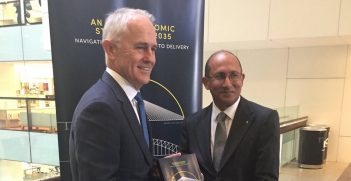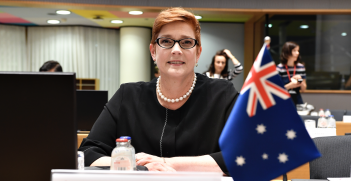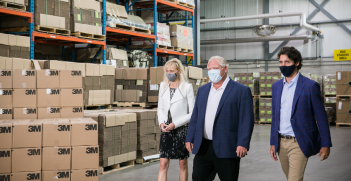Trump and the World Trade Organisation

Many US non-governmental trade experts describe the Trump Administration’s actions in regard to tariffs and the WTO and its Appellate Body as illegal and as threatening to the WTO’s continued existence.
Its latest action against Turkey clearly shows that the Trump Administration continues to regard its use of the imposition of unilateral and discriminatory tariffs as an effective and—it claims—legitimate means of achieving its policy objectives. These are not limited to trade objectives, including as they do the release of an arrested American citizen (Turkey), a changed regional policy (Iran) and modification of economic and technological aspirations (China).
The US justifies its actions by claiming “national security” concerns, but seems to be drawing a long bow indeed in regard to them, for example, including at one stage the export of Mercedes cars to the US. In support of its actions the US cites Section 232 of its 1962 Trade Expansion Act, which gives a US President the right to restrict imports to protect national security, and a 1982 legal decision on the use of Article XXI of the GATT, which goes over the same ground. However, while this “national security” justification exists it has rarely been invoked by WTO members. Rufus Yerxa, President of the US National Foreign Trade Council and a former Deputy Director-General of the WTO, has said the US will now need to “be prepared for every country to come up with a new definition of what is its critical national security interest.”
Other WTO members are in fact treating the US measures as emergency “safeguards” restrictions which must meet certain WTO criteria, and say they are entitled to retaliate since the US did not compensate them for their imposition. US Trade Representative Lighthizer says this is based on a “groundless legal theory.” But on 10 August, CNBC quoted Matt Gold, a former Deputy Assistant Trade Representative, as saying that Trump had essentially demolished the WTO system by “retaliating” against China without going through the WTO process which allows for negotiation and settlement. This removed inhibitions on other countries retaliating instantly against the US.
Jennifer Hillman, a Professor at the Georgetown Legal Centre and a former WTO Appellate Body member, has noted that there is a WTO rule which states that “you cannot discriminate among WTO members,” which of course is exactly what the US is doing. She has gone on to say that “there are those who would go so far (as) to say that the US has almost effectively withdrawn from the WTO by engaging in all the unilateral tariffs we’ve seen.”
This may not be accidental since, as Mathew Oxenford noted in a Chatham House article of 9 March, during the 2016 Presidential campaign Trump said he would pull the US out of the WTO if it ruled in favour of retaliatory action against US protectionist measures. James Bacchus, a US lawyer, former Congressman and former head of the WTO Appellate Body, has described Trump’s tariffs as “illegal taxes on trade.” He said that “the US will lose every case brought against us” if the US relies on “national security” grounds.
Bacchus noted that by and large China has complied with the findings in the many WTO cases that the US has successfully brought against it. But there may not be any more. As noted in an earlier ‘Pearl’, the US is refusing to agree to the replacement of any members of the WTO’s Appellate Body. That normally has seven members, who make up panels of three to hear cases. At present there are only four, with one of them, from Mauritius, due to step down next month. That will leave three. As things have worked out there will be one each from the US, China and India, in theory enough to make up one panel. But the practice is that an Appellate member cannot hear a case involving his or her own country—so no cases involving the US, China or India can be heard. As Professor Hillman said, pretty close to effectively withdrawing from the WTO.
Geoffrey Miller AO FAIIA is a former Australian diplomat and head of the Office of National Assessments. He is former president of AIIA NSW and AIIA National Vice-President. He is presenting a Masterclass as part of the AIIA’s National Conference on 14 October. Applications close on 9 September.
This article was originally published on John Menadue’s ‘Pearls and Irritations’ on 16 August 2018. It is republished with permission.
This article is published under a Creative Commons Licence and may be republished with attribution.





